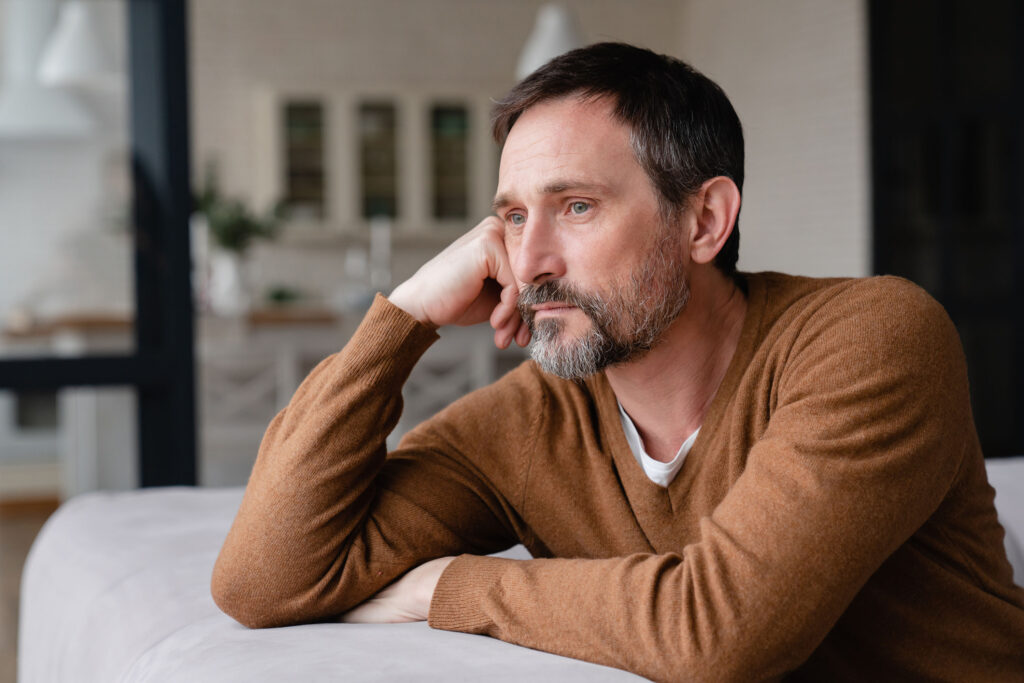About 30% of men will experience an episode of depression in their lifetime. However, depression tends to affect men and women differently, and often goes undiagnosed in males. Whereas depressed women are more likely to report feelings of sadness and episodes of crying, men often experience different depressive symptoms.
While depression can include feelings of sadness, hopelessness, and a lack of interest in life, men often experience additional symptoms that are overlooked or misattributed to stress, personality, or physical illness.
Here are some signs of depression that may appear in men:
Anger and Irritability
Men with depression may show irritability, frustration, or even rage. These emotions can surface in response to minor problems and are sometimes misread as aggression rather than symptoms of an underlying mood disorder.
Physical Aches and Pains
Depression often shows up in the body. Men may complain of headaches, back pain, digestive issues, or chronic fatigue without a clear physical cause.
Withdrawal from Relationships
Men might pull away from family and friends, avoid social activities, or seem emotionally distant. This isolation can worsen depressive symptoms over time.
Loss of Interest
A once-active man may suddenly stop engaging in hobbies, sports, sex, or work. A general lack of motivation or enthusiasm for life can be a key red flag.
Risky or Reckless Behavior
Some men cope with depression by engaging in risky behaviors—reckless driving, unsafe sex, excessive spending, or substance abuse.
Changes in Sleep or Appetite
Sleeping too much or too little, insomnia, fatigue or sudden changes in eating habits can all be signs of depression.

Substance Abuse
Using alcohol or drugs to cope is more common in men with depression. What may seem like a bad habit could be an attempt to numb emotional pain.
Persistent Feelings of Guilt or Worthlessness
Men may experience intense feelings of failure or hopelessness, though they may be less likely to talk about them openly.
Low Sex Drive
Hormonal changes, low energy, negative self-image, and emotional numbness associated with depression can all contribute to a decreased libido.
Why Men Often Don’t Seek Help
Many men grow up with messages like “man up,” “don’t cry,” or “deal with it yourself.” These outdated views on masculinity can prevent men from recognizing that they need support—or believing that it’s okay to ask for it.
But the truth is: seeking help is not a sign of weakness. It’s a sign of strength.
Depression is more common than you might think—and it is treatable. The first step is recognizing the signs, and the next is reaching out. To get started, call (972) 755-0996 or make an appointment online to see a trained, professional counselor at Dallas Whole Life Counseling.

